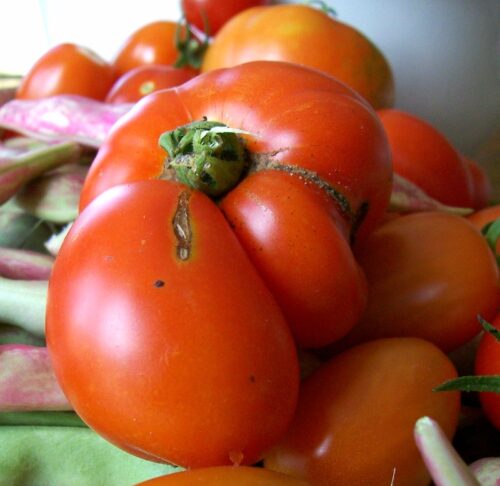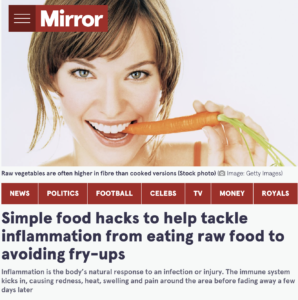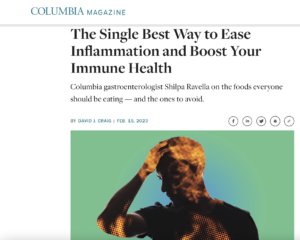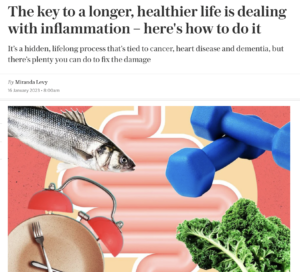What are the benefits of eating sweet potatoes?

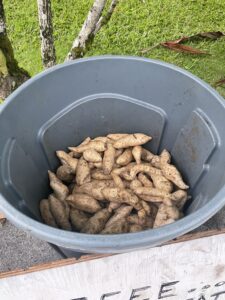
To the anonymous, generous individual who put out a bucket of free sweet potatoes that I ran into while walking around town one day: thanks for sharing this superfood with your neighbors!
All potatoes are not created equal. If I had to choose a dietary centerpiece, the sweet potato would be a major contender. In fact, the sweet potato was a staple food source in many traditional diets all over the world, including those in parts of Asia, Africa and the Americas.
In the traditional Okinawan diet, for example, over half of an individual’s daily calories came from sweet potatoes, which are filled with nutrients that manage inflammation and enhance immunity, including fiber, polyphenols, vitamins C/E/B6, and folate. They’re one of the best sources of beta-carotene–a precursor of vitamin A, which is especially important for immune health. In humans, sweet potatoes have been shown to decrease blood inflammatory markers.
Three tips on choosing and preparing potatoes of all kinds:
* Look for deep, intense colors
* Don’t ignore the peels, as they may be even more nutritious than the flesh
* After cooking your potatoes, chill them for 24 hours before reheating them or eating them cold. This enables the potatoes to develop more resistant starches and lowers their glycemic load
5 Surprising facts about gut health
“Ugly” food, which I write about in A Silent Fire, is good for both your gut and the environment.
Each year, around a quarter of produce in the U.S. is thrown away for cosmetic reasons, including strange shapes and curves and minor blemishes, contributing to global food waste and climate change. But these so-called imperfect foods may be even more nutritious and adept at fighting inflammation than their attractive counterparts.
Plants grown with fewer pesticides, for example, produce higher amounts of beneficial nutrients while battling pests and lower amounts of sugars. These plants, although physically scarred by their struggles, may be especially healthful for our gut.
The secret to beating hay fever could lie in your gut | The Telegraph
April 11, 2023
A growing body of studies suggest that there might be an alternative method for tackling our symptoms—through our diet.
So many people are suffering from allergies these days. I spoke with The Telegraph and Outside Magazine about allergies, lifestyle, and the immune system. Food is an important adjunctive treatment that can help to prevent, suppress, and even reverse inflammation in those with allergies.
Quercetin, a polyphenol found in foods like onions, cabbage, broccoli, and berries, acts as an antihistamine. Vitamin C, found in citrus fruits, is another natural antihistamine. Fermented foods like kimchi and sauerkraut are linked to lower inflammation and the cultivation of an anti-inflammatory gut microbiome. And simply drinking enough water to stay hydrated is supremely anti-inflammatory!
Inflammation may be the culprit behind our deadliest diseases | TIME
April 11, 2023
By Shilpa Ravella
That inflammation is a common element in humankind’s top killers—heart disease and cancer—is unlikely to be serendipitous. The intricate link between inflammation and modern chronic diseases is rooted in our evolutionary history. In order to survive infections, famine, and other dangers in brutish ancestral times, we developed hyperactive immune systems and insulin-resistant bodies adept at storing fat. But our modern environment has been markedly transformed, from the food we eat to the air we breathe, how we move and more. Our immune system is exceptionally sensitive to the triggers of this new world, portending a higher risk of chronic, hidden inflammation.
In the 21st century, as hidden inflammation weaves through our deadliest diseases, unveiling this force—seeing what has long been unseen—is poised to make its mark on medicine.
Simple food hacks to help tackle inflammation, from eating raw food to avoiding fry-ups | The Daily Mirror UK
April 1, 2023
There are steps we can all take to prevent and reverse inflammation, and it starts with what we eat.
I spoke with Luisa Metcalfe on the small changes to the way you choose, prepare and eat your food that could reap big health rewards.
The single best way to ease inflammation and boost your immune health | Columbia Magazine
Fortunately, scientists have made progress in understanding how to prevent runaway inflammation, which occurs when the immune system becomes hyperactive and attacks healthy tissues. Studies suggest that avoiding exposure to tobacco smoke, air pollution, and other environmental irritants can help, as can limiting one’s alcohol use and reducing stress. But some of the biggest scientific breakthroughs have come in understanding the massive role food plays in boosting — or busting — the immune system.
The key to a longer, healthier life is dealing with inflammation – here’s how to do it | The Telegraph
I spoke with Miranda Levy about how to deal with inflammation in the body.
In the short term, inflammation is a normal healthy response to invaders. When your body encounters an offending agent – such as viruses, bacteria or toxic chemicals – it activates the immune system. Your immune system sends out its first responders: inflammatory cells and cytokines (substances that stimulate more inflammatory cells) to neutralise the intruders or to start healing injured tissue. In acute inflammation, the body jumps to immediate attention – for example, healing a cut. But with chronic inflammation, your body continues sending inflammatory cells even when there is no outside danger.

